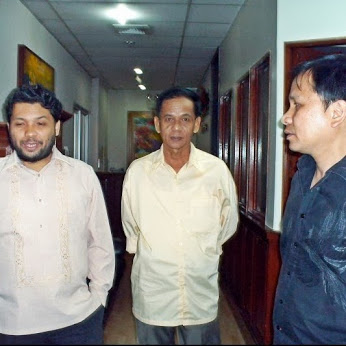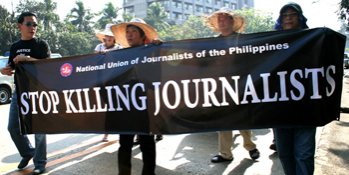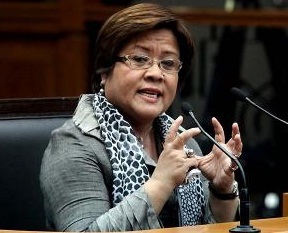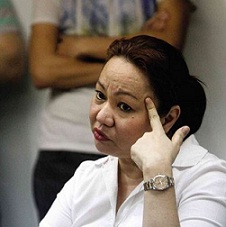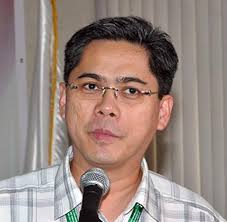The death of Mindoro broadcast journalist Nilo Baculio Sr. should bear not only on the conscience of the Court of Appeals judge who dismissed his petition for protection as “unsubstantiated” but also on this government especially President Aquino by being cavalier about media killings in the country.
Last Monday, June 9, 2014, the 67-year old Baculio, who hosted the program “Isumbong Mo kay Ka Nilo” over radio station dwIM in Calapan City, was gunned down by two unidentified men riding in a motorcycle.
The National Union of Journalists of the Philippines, who monitors the state of media in the country including media killings said: “Baculio was the 165th journalist murdered in the country, the 33rd under the watch of President Benigno Aquino III and the fourth this year.”
Lawyer Harry Roque, who represented Baculio in procuring from the Supreme Court the first ever Writ of Amparo in favor of a journalist in 2008 but was refused by the CA ,said “There is blood in the hands of the CA Justices who refused Nilo Baculio protection.”
Roque said the killing of Baculio is a grim example of “what happens when the Court errs in their appreciation of evidence.”
Roque recalled: “Nilo in his application for protection order stated under oath that locally elected officials engaged in the illegal drug trade are out to kill him. The CA said this was not supported by evidence beyond the say so of Nilo. Granted that the CA’s decision was prior to the ruling of the Supreme Court in the Manado brothers case where the Court said that Amparo is proper in order to release a petitioner form the threat of fear form his life, the CA, in Baculios case, wanted evidence which oftentimes cannot be provided given the nature of threats against anyone: their verification is almost difficult if not possible.”
Baculio is dead. His comment that “Our justice system is rotten. You have to die first before you can prove” that a threat does exist became prophetic.
Roque said the death of Baculio should prompt our courts to be more circumspect in dismissing applications for protection orders.”While a wrongfully issued writ will not hurt anyone, a person denied of the same could result in the death of the petitioner.”The NUJP attributes the impunity in the killing of journalists to the environment encouraged by the government. To be sure, it’s not only the Aquino government. Previous governments just paid lip service to the country’s notoriety as one of the most dangerous places for journalists and always cites the vibrant state of media freedom in the Philippines as if it’s their gift to media.
NUJP said:”Between a president who dismisses media killings because, to him, most victims are targeted “not because of professional activities, but, shall we say, other issues,” courts that, as Baculio sadly foretold, will believe lives are in danger only when those lives are actually lost, and security forces that, as a recent Human Rights Watch report and a number of other investigations into journalists’ murders have noted, are most likely involved, demanding, even hoping for, justice may seem to be an exercise in futility.”
NUJP further said “We will never tire of pointing out that the State’s failure to protect its own citizens makes it accountable for each and every extrajudicial murder that makes a mockery of all claims to our being a democracy.”
In President Aquino’s Independence Day speech yesterday, he recalled his fatehr’s words:“In a true democracy, every person is required not merely to protect the right of those they agree with, but to defend even the rights of those with whom they disagree. If the rights of any one is disregarded, there will come a time when your own rights will be disregarded.”
He could give substance to those words by sincerely appreciating the role of media plays in a democracy.
